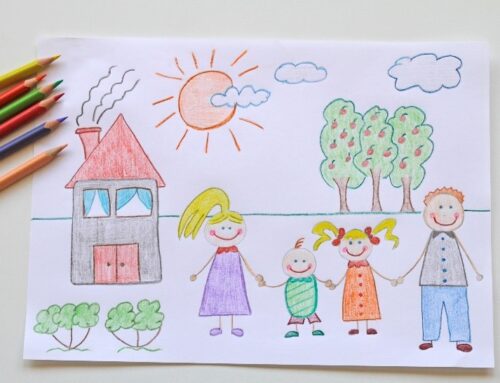
Perhaps you have read the children’s classic Winnie the Pooh by English author A. A. Milne (1882-1956). Two of Pooh’s closest friends are Tigger—a perpetually bouncy, excitable, happy cat and Eeyore—a long-faced, pessimistic, depressed donkey. The Mini Adventures of Winnie the Pooh at https://youtu.be/tB-Sd0qRL-Y is but one example of how different they are. I would suggest these two are a microcosm of humanity and how we interact.
King Solomon summarizes a profound principle for relationships in Proverbs 27:14: “If a man loudly blesses his neighbor early in the morning, it will be taken as a curse.”—NIV
I have quoted this verse at camp, after a rough night as a counselor with a cabin full of boys and at Bible college, while living in residence with a bunch of rowdy guys.
Sometimes relationships need a thermometer.
 Solomon observes [with a hint of sarcasm] that without sensitivity, your “blessing” can be received as a “curse”. One day my wife Brenda and I went to a funeral and a birthday party in the same afternoon. As you can imagine the mood at each occasion was vastly different. How do you suppose it would have gone if we had tried to cheer up people at the funeral or calmed down the revelers at the birthday party? We were called to be there for each family.
Solomon observes [with a hint of sarcasm] that without sensitivity, your “blessing” can be received as a “curse”. One day my wife Brenda and I went to a funeral and a birthday party in the same afternoon. As you can imagine the mood at each occasion was vastly different. How do you suppose it would have gone if we had tried to cheer up people at the funeral or calmed down the revelers at the birthday party? We were called to be there for each family.
In the midst of teaching how to express love for one another, the Apostle Paul exhorts us in Romans 12:15 to “Rejoice with those who rejoice; mourn with those who mourn.”—NIV
I am more of a nighthawk than a morning person. My family will tell you that I would prefer to listen to the news on the radio and be left alone while I eat breakfast. I would rather ease into my day by going through my morning ritual than by engaging in stimulating conversation. I don’t want someone bouncing into the kitchen talking too loudly or cheerfully.
One of my favourite Bible verses happens to be the shortest, so I encourage you to memorize it. In a crowd of people mourning the death of Lazarus, our Lord matches their emotions in John 11:35: “Jesus wept.”—NIV
Even though Jesus knew He was about to raise Lazarus from the dead, He was so moved by the sadness of those around Him that He too was brought to tears. He did not rebuke them for their emotions, but felt “with” them—like a thermometer feels the cold of winter and the heat of summer.
It is wise to take the temperature of a room occupied by someone or a group of people before you try to influence the temperature. Taking the time and being sensitive to others will influence conversations and relationships a great deal. When you meet someone are you more inclined to engage your mouth or your ears? Would you ask the Lord to help you to be more sensitive to others?
Sometimes relationships need a thermostat.
 Sometimes you have to decide if you will be a thermometer or a thermostat in a conversation. You either take the temperature of the other person’s emotions or you try to adjust the temperature of the other person’s emotions. Knowing which option is the best for the occasion can draw people in or push them away.
Sometimes you have to decide if you will be a thermometer or a thermostat in a conversation. You either take the temperature of the other person’s emotions or you try to adjust the temperature of the other person’s emotions. Knowing which option is the best for the occasion can draw people in or push them away.
The story doesn’t end with Jesus weeping in John 11:35, but goes on with Jesus raising Lazarus from the dead. Did you catch what happened there? Jesus matched the emotions of those grieving, but ultimately there was another plan to be fulfilled. At this point He shifted from being a thermometer reflecting the temperature to being a thermostat changing the temperature. Whether it’s raising the dead, healing the sick, sharing the Good News, giving, helping out or dishing up a compliment, we all have opportunities to affect the interpersonal weather around us.
Gretchen Rubin asks, “Are you a Tigger?” “Are You Annoyed by Excessively Cheery People? Or Extremely Gloomy People?” In her article she suggests that
The lesson for Tiggers may be this: you can’t “make” someone happy, and don’t exhaust yourself trying; in fact, it may be counter-productive to try. The more you point out the reasons to see the glass as half-full, the more you may cause a person to dwell on the reasons to see the glass as half-empty, as a counter-balance to your well-intended cheer.
The lesson for Eeyores may be this: don’t try to force other people to adopt your point of view, even if you think it’s more realistic or more philosophically worthy. You can’t “make” someone see things your way, and you may actually make them shut their eyes tighter to what you’re trying to show.
(Source: psychologytoday.com)
I love our Lord! He experiences and expresses the full gamut of emotions from happiness to sadness, from anger to delight. He calls His people to do the same. Would you like to know how God is feeling about the people and situations you face? Will you ask the Lord to express His emotions through you?
Sensitivity helps to ensure that your gift is appreciated.

Allan Pole
CESLM President
al@eslcooperative.ca





























































